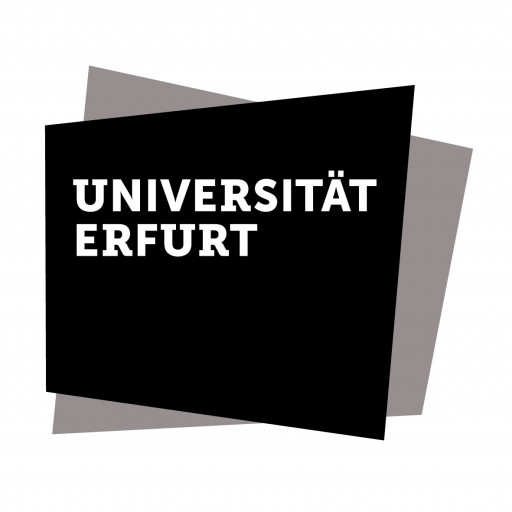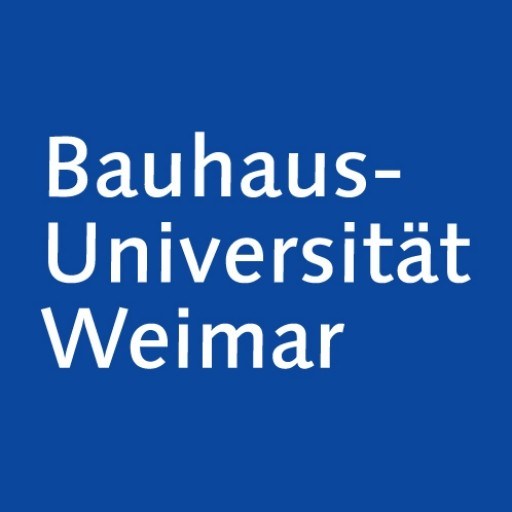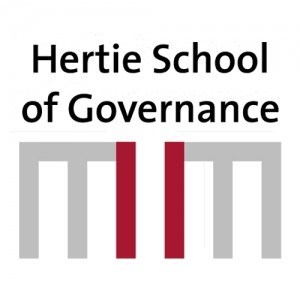Photos of university / #unierfurt
Public Policy at the University of Erfurt is an interdisciplinary master's program designed to equip students with the knowledge and skills necessary to analyze, develop, and implement effective policies in diverse political and social contexts. The program emphasizes a comprehensive understanding of political systems, governance processes, and policy-making mechanisms at local, national, and international levels. Students will explore key thematic areas such as public administration, political theory, economics, law, and ethics, enabling them to approach complex societal issues with a multidimensional perspective. The curriculum combines theoretical foundations with practical applications, including case studies, policy analysis exercises, and internships, to prepare graduates for careers in government, non-governmental organizations, international agencies, and the private sector. The program also promotes critical thinking, research competence, and effective communication skills, which are essential for influencing public debates and crafting sustainable policies. The diverse student body fosters an international and intercultural learning environment, encouraging the exchange of ideas and experiences across different political and social systems. The University of Erfurt's Public Policy master's program benefits from close ties to policy practices and a faculty with extensive expertise in political science, public administration, and related fields. Graduates leave equipped not only with a solid academic background but also with practical tools to address contemporary challenges such as climate change, social inequality, digital transformation, and globalization. The program prepares students for leadership roles in policy development, implementation, and evaluation, making it an ideal choice for those committed to shaping equitable and effective governance in a rapidly changing world.
Educational organisation
The MPP programme requires a minimum of 120 ECTS credit points - consisting of a core curriculum, a policy internship and an intensive policy analysis project (practical training module), elective courses taken from five potential areas of specialisation (specialisation modules), soft skills and language training.
Courses in the modules of the core curriculum are mandatory, while courses in the specialisation modules, the practical training module, and the basics and language module can be fulfilled according to the personal interests and professional needs of each student. The practical training module consists of a policy internship and an intensive policy analysis project, while students can improve their soft skills and language competencies within the basic and language module.
The MPP's core curriculum consists of the Policy Analysis, Management, and Leadership Modules.
Policy Analysis Module (first semester)
Building on the interdisciplinary approach of the Brandt School, this module includes an introduction to public policy as a discipline, while simultaneously utilising methods and frameworks from other disciplines, which are useful when analysing public policy. The module comprises four courses and lays the foundation for the upcoming three semesters:
- Introduction to Public Policy
- Quantitative Analysis and Empirical Methods
- Economic Analysis and Modelling
- Comparative Public Policy or Microeconomics I: Game Theory
Management Module (second semester)
In this module, students learn more about management within the public sector. By the end of the semester, students should be able to understand the key issues regarding the management of public service provisions, and to make sound policy decisions within the limitations of financial budgets. The mandatory courses in this module are:
- Strategic Management and Public Administration
- Financial Management
Leadership Module (third semester)
The MPP prepares future leaders who will have major management responsibilities. In this module, students will learn more about political advocacy and ethical leadership in these two courses:
- Political Advocacy and Leadership
- Ethical Issues in the Public Sector
In addition to the courses from the core curriculum, students must choose at least two of the four specialisation modules (2x9 ECTS) or the area of concentration "Conflict Studies and Management" (1x18 ECTS). This area of concentration provides students with a sound theoretical basis for analysing contemporary conflicts and developing responses to them. Furthermore, it conveys practical skills to critically assess policy interventions and to develop conflict resolution approaches.
The specialisation modules are usually completed in the second and third semesters. Students choose two out of four specialisation modules:
- Public and Non-Profit Management
- European Public Policy
- International Affairs, International Cooperation and Development
- International Political Economy
Each specialisation module includes a variety of elective courses and helps students to develop and specialise their individual profiles.
The fourth semester is devoted to the Master's thesis, accompanied by thesis colloquia. In each semester, students should earn approximately 30 ECTS credit points.
Study abroad unit(s)
This is usually only possible in connection with an internship and/or Master's thesis research if students wish to undertake this abroad. However, arrangements are possible on an individual basis.
Internships
An internship, usually completed between the second and the third semester, is a requirement for completion of the degree. Designed to be an integral part of our students' education, the primary purposes of the internship are:
- To offer students the opportunity to apply the knowledge and skills they have learned from the classroom in a work setting
- To give students a practical perspective on policy analysis and public management
- To help them compare their abilities and interests with requirements in particular fields of public policy
The Brandt School provides assistance in securing an internship position at government agencies, international organisations, NGOs, other non-profit or for-profit organisations.
Forms of assessment
Course assessment can consist of one or more written or oral exams, presentations or papers. MPP students can also take part in case studies, debates, panel discussions, mock negotiations, workshops.
Course objectives
The Brandt School's Master of Public Policy is a two-year, interdisciplinary degree programme designed for highly talented and motivated young academics and professionals who wish to pursue a career in public service, including government agencies, international organisations and the non-profit sector.
Political leaders, government officials, and business executives are currently facing new challenges: globalisation and European integration are changing the framework for political action in the European nation states and beyond. The increasing interdependence and complexity of political, economic, social, and cultural processes have an impact on all democratic societies.
The Master of Public Policy (MPP) - the first of its kind offered by a German university - reflects these challenges. It equips future decision-makers with the knowledge and practical skills they will need to advance the public interest by enabling them to make policy decisions on a rational basis and by implementing policy programmes effectively.
Language requirements
- TOEFL paper-based test: min. 577
- TOEFL computer-based test: min. 233
- TOEFL Internet-based test: min. 90
- IELTS: min. 6.5
- Cambridge Certificate of Proficiency in English: A or B
Test scores must not be older than two years.
Academic requirements
- Higher (secondary) education entrance qualification (i.e. high school diploma)
- College or university degree (BA, MA, Diploma, state exam or equivalent), minimum duration of six semesters
- Above-average grades
- Analytical talent and pronounced interest in political problems
- Proficiency in the English language
Enrolment fees
Currently 270 EUR per semester
This fee includes costs for public transport in Erfurt and regional trains in the Free State of Thuringia.
Costs of living
Living expenses (accommodation, food, health insurance, etc., as calculated by the city of Erfurt's Foreigners' Office) amount to approx. 640 EUR (per month for 22 months).
The cost for course materials (books, course packs) amounts to approx. 100 EUR per semester.
Job opportunities
Subject to certain legal regulations and limitations, and depending on your own flexibility, you may be able to find work in Erfurt. German language proficiency can be a major asset in terms of employability.
- A number of Brandt School students have worked as part-time English teachers in Erfurt.
- If you speak a different native language, you may be able to find opportunities to teach it to others in exchange for payment.
- There may also be opportunities to work as a student assistant at the University of Erfurt or at the Brandt School itself.
Funding opportunities within the university
In cooperation with the Haniel Foundation, the Brandt Schools offers two kinds of scholarships for MPP students: the Haniel Scholarships for applicants from Eastern Europe and CIS countries, and the Haniel Stipends for applicants from Germany, Western Europe, North America and Australia. Haniel Scholarship holders receive a full scholarship of 750 EUR per month for the duration of the two-year study period at the Brandt School. Each year, up to four scholarships are awarded. Haniel Stipends cover the costs of the tuition fees at the Brandt School for the two-year study period (6,000 EUR).
In addition, a limited number of partial Brandt School scholarships are available for international students in the second year of their studies. Applicants who are eligible will automatically receive instructions on how to apply. Brandt School scholarships are subject to academic performance and continued availability of funds. The amount of money awarded to successful applicants is not pre-defined. Therefore, we highly recommend that students also apply for scholarships from third-party institutions.
All scholarships at the Brandt School are merit-based.
http://www.brandtschool.de/admission/financing-your-studies
Arrival support
New students will be sent a detailed information package prior to their arrival, which contains information such as how to get to Erfurt, where students without prearranged accommodation can stay, and which steps should be taken upon arrival. In addition, the Brandt School organises an orientation week, which takes place shortly before the official start of classes.
Services and support for international students
The University or Erfurt's International Office provides basic services of all kinds for students from abroad.
The Brandt School itself provides assistance with accommodation, health insurance, residency permits, etc., as necessary.
Besides having an individual academic mentor, students can participate in a matching programme with senior students (study buddies) and/or citizens of the city of Erfurt on a voluntary basis.
MPP students can make use of exclusive facilities (rooms, computers) and also have individual lockers at the Brandt School.
The Brandt School additionally provides assistance in writing CVs as well as in searching and applying for internships and jobs.
Small class sizes offer a sound learning atmosphere.
Accommodation
The Brandt School makes every effort to secure a place in one of the student halls of residence for all MPP students. This means, however, that your application should arrive as early as possible, as rooms are awarded on a first come, first served basis.
The residence halls are administered by the university's "Studentenwerk" (Student Services Organisation). Rents are priced according to the size and quality of the room and according to the number of occupants. The same rental and residential conditions apply to all rooms in the various halls of residence. The rent includes service costs (heating, water, electricity). A deposit of 200 EUR must be paid for all placements in halls of residence. Students generally live in rooms in shared apartments. A limited number of single apartments are also available.
Off-campus accommodation is available in abundance in Erfurt. Students who opt not to live in the halls of residence typically have no difficulty in finding a small room or apartment at a reasonable price once they have arrived in Erfurt.









